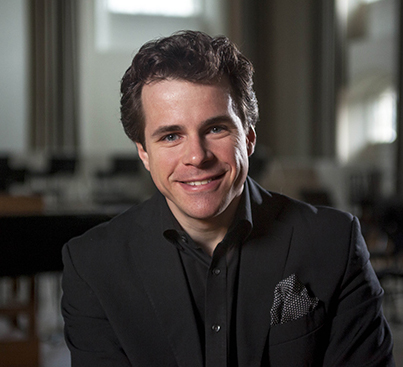by Mike Telin

John Adams’ On the Transmigration of Souls was commissioned by the New York Philharmonic and Lincoln Center to commemorate the first anniversary of the September 11 attacks in 2001. The composer has written that
“Transmigration means ‘the movement from one place to another’ or ‘the transition from one state of being to another.’ But in this case I meant it to imply the movement of the soul from one state to another. And I don’t just mean the transition from living to dead, but also the change that takes place within the souls of those that stay behind, of those who suffer pain and loss and then themselves come away from that experience.”
The single movement, 25-minute work for orchestra, chorus, children’s choir, and pre-recorded tape was awarded the 2003 Pulitzer Prize for Music.
“I’ve never conducted this piece before,” Hrůša said, during a telephone conversation, “and to be honest with you and anyone who will read this, it is the first piece by John Adams that I have done.”
The conductor said that he was honored when Mark Williams, the Orchestras Chief Artistic Officer, invited him the lead the Cleveland premiere of the work. “It’s a privilege, and a natural way for me, as a European, to contribute to the remembering of this profound, tragic event. [Adams] turns a traumatizing experience into something that is artistically meaningful and I’m happy that I can be part of it.”
By Mahler’s standards, his fourth symphony is on the small side, at least when you compare it to the composer’s symphonies Nos. 2 and 3. “Mahler was always ambitious to bring something new to his symphonies,” Hrůša said. “He never stopped testing the limits of his own creative force, and the patience of his audiences. I do think that No. 4 does test those, but in a completely different way — with its unexpected subtlety and chamber music quality.”
For Hrůša, the most striking feature of the symphony is its finale, which is said is not a finale in the common sense of the word. “It’s a child’s song (Das himmlische Leben),” he said, adding that Mahler did not intend it to be sung by an operatic soprano, but by someone with a childlike voice. “It should have a naïve or innocent sound.”
Hrůša noted that the symphony finishes on an intimate scale. “It just evaporates. It has no ending that confirms some sort of success. It’s chamber music at its best. It’s one of those symphonies or pieces of art, that when they finish, you feel maybe half-satisfied, and moved to think further to think about your life. The best art stimulates one to deeper thought, and I think that Mahler Four does that. It’s a masterpiece with nothing else like it out there in the history of music.”
Over the past few seasons Hrůša has made many visits to Severance Hall, and his programs usually include a gem from the Czech repertoire, these concerts being the exception.
“I have a fantastic relationship with The Cleveland Orchestra — I’ve done such a variety of repertoire, from the standard warhorses to the specialties of my own cultural heritage, to amazing accompaniments with great stars from the soloist scene, but I have not done American music, and for me, this aspect is extremely important. This should not just be about me bringing or imposing what I like. It is a two-way street. It should be a cultural exchange and a sharing of beauty.”
Published on ClevelandClassical.com November 13, 2019.
Click here for a printable copy of this article


